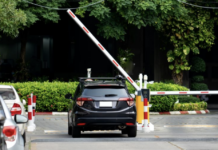KUALA LUMPUR, April 29 — After three decades of being used to assess pupils’ cognitive achievement at the end of Year 6 in primary schools, the time has come for the Primary School Achievement Test (UPSR) to bow out from the national examination system.
The announcement by Senior Education Minister Datuk Dr Radzi Jidin regarding the abolishment of the UPSR on Wednesday has significantly boosted the government’s efforts to transform the traditional examination into a better assessment method.
This is because since the UPSR was introduced in 1988 to replace the Standard Five Assessment, millions of students have sat for the examination, which was seen as being important in determining the direction of the students entering secondary schools.
The UPSR results are used by students to seek admission into selected schools, such as boarding schools or even Maktab Rendah Sains Mara (MRSM), which prides itself in producing outstanding individuals in the academic field.
Thus, schools will usually compete to produce straight ‘A’ scorers while parents will also drill their children to obtain outstanding results to achieve the set targets.
Students who score straight As will usually receive widespread praise and acclaim as well as given various recognitions compared to low-performing students who are often neglected.
This situation, which has been happening for decades, actually has an impact on the underachieving pupils, especially in terms of personal development so much so they begin to doubt their own capabilities, are afraid to try new things and always consider themselves as being “unsuccessful individuals”.
The truth is that this exam-oriented learning system has long become a “festering wound” in the education system and one of the hotly-debated topics among academicians in the country.
In fact, calls to abolish the UPSR have been made for over 10 years so as to reduce the burden on students, who are too young to be separated in terms of potential through their achievements in the examination.
Even the National Union of the Teaching Profession (NUTP) had repeatedly raised the issue of abolishing the UPSR by asking the Education Ministry (MOE) to focus on developing students holistically since UPSR is seen as being very limited in its ability to measure the pupils’ true ability.
Therefore, the long-awaited announcement on the abolition of the UPSR can certainly be considered a great success to the efforts and struggle to change the national education system, especially in terms of student assessment.
Radzi said that with the abolition of the UPSR, the assessment method for Year Six students will be focused on strengthening school-based assessment starting this year, while that for admission to boarding schools for 2022 will be based on Specific Schools Admission Assessment (PKSK).
When the COVID-19 pandemic hit the country, and the world, the voices calling on the government to abolish the UPSR after 33 years of existence got even louder.
According to Anuar Ahmad, a senior lecturer at Universiti Kebangsaan Malaysia’s Centre for Education and Community Wellbeing Studies, Faculty of Education, the situation has proven that we can no longer implement this outdated form of examination.
“The UPSR has failed to develop the pupils holistically, especially in developing their overall capabilities in terms of their interests and abilities.
“It is not appropriate to categorise the pupils according to their abilities. With this abolition, it will open up opportunities for the national education to focus on the development of talents and potentials, rather than academic performance at such an early age,” Anuar said.
In fact, many will agree that school-going children from the age of seven to 12 should not be burdened with exam-based learning.
At this point, their new cognitive development is just beginning, with the blossoming of their emotions and the structuring of their behaviours through the formation of values within themselves.
“It is too early to punish children at this tender age as that’s when they are beginning to show their potential, interests, abilities, desires and inclinations. “But, what happens in our education system in the primary school is that when the children are still developing, in terms of understanding themselves, they are being pressured with a rigid education system that is too rigid with specific subjects and strict scheduling… so much so they curb their enthusiasm to learn and think critically and enjoy their childhood and school life,” Anuar added.
Therefore, the education analyst suggested that the agenda of the pupils’ talent development be developed through co-curricular activities, which should be elevated to become as important as classroom learning activities.
He said students should develop their talents and interests according to their inclinations more effectively and systematically.
The concept of learning should not mean rote memorisation and exam drills in the school co-curriculum is no longer suitable and must be replaced with learning modules that require students to do problem-solving, creativity, communication and collaboration.
He said that when education covers the spiritual, physical, intellectual and socialisation aspects, then learning will become fun in schools.



















